How to Build Your Preparedness Community

I initially thought I’d call this article “tribe” because that’s the most important thing, but I had to open my aperture a bit and look at a more significant problem set and address the potential solutions. Your tribe is your inner group, the ones you know you can count on when things go sideways, or at least you’ve committed to care for and protect.
That said, there’s also a larger group, a community, other individuals and groups with whom you will interact, but that relationship is more transactional. And lastly, there are those that wish to do you harm. Maybe not physical damage, perhaps not consciously, but they certainly don’t have your best interests in mind.
So the big question is; how can you tell the difference?
Overview of Community
In this article, we’ll discuss what it means to have a real tribe, why singleton operations probably aren’t ideal or sustainable, how to validate someone’s intentions when building a community, how to safeguard your tribe, and how to weed out and manage adversaries.
This isn’t a “how to” manual, merely some thoughts about what to look for and some ways to maintain some level of control as it relates to societal interactions.
I’d also like to throw out the caveat that no matter how well you think you know someone or how predictable a person or group has been, there’s always potential for desperation and manipulation to change someone’s actions. Be ever vigilant in protecting yourself and your loved ones.
Let’s get into it.
It’s The People, Not The Geography or Name
I love my family, and I’d do anything to protect them. I’m sure you’re the same. If you’ve been paying attention, you’ll know we live in very uncertain times, and the threats against fellow citizens are coming from all directions. Take a look at this recent article if you have doubts.
It’s nice to think if I won the lottery, I’d buy a big chunk of land and live free of negative interactions with the outside world, but that’s not my reality. Probably not yours either. We have homes, jobs, and social lives. Unless things like a fire or hurricane drive us from our homes, we’re probably better off staying in our neighborhood.
Neighborhood not Community
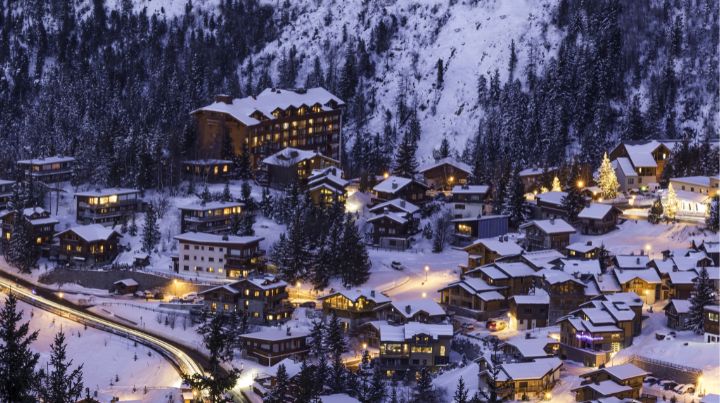
Notice I specifically said neighborhood and not community. Your neighborhood is the people that live around you. Your community is with whom you interact for the betterment of your tribe. Someone living right next to you doesn’t necessarily care whether you live or die.
Here’s a simple scenario. You’re unloading a large amount of long-term food stores in your driveway. As you do, are you conscious that this might be something you don’t want your neighbors to know, and are there any neighbors you definitely DON’T want to know?
Just like neighbors are the people that live in geographic proximity to you, family can be just some shared DNA. The ugly truth is you might have family that isn’t your tribe, might not be in your community, and might wish harm upon you. Things get really complicated when it’s your in-laws.
It’s advisable to start thinking about who is in your tribe and ensure your significant other is on the same page.
Definitions
For this discussion, let’s define a few things;
Tribe
Those within your inner circle that you trust. People that you’re willing to protect and provide for and also bring something to the table. Your tribe should work together for a common goal, all planning and interacting to care for each other’s loved ones. Trust is a premium, although some information may be compartmentalized.
You might not have conversations with your loved one about the amount of ammo you REALLY have, but your best friend probably knows, and you’re probably not sharing your finances with your best friend, but your wife probably has full transparency. They’re both still in your tribe, working toward common goals and having similar morals.
Community
Your community is made up of people with whom you have some common interests, objectives, morality, and a willingness to work together for a better outcome. These relationships are more transactional, and there may be an assumption of compromise.
They may have slightly different goals or objectives, but there’s enough overlap to engage them for the betterment of the total population. An example might be a neighbor that will trade chicken eggs for fresh vegetables from your garden. You may not trust the neighbor with your wife when he’s been drinking, but you’re comfortable keeping them at arm’s length to exchange food.
Adversaries
Those that DO NOT share your same common interests, objectives, or morality. Those suspected or proven to be working against you OR willing to sacrifice you for their benefit. These will be the people or groups that will target you. Some may be easy to recognize, but others will only show themselves when it matters the most.
Call me paranoid, but there isn’t an “unknown” category in my world. Everyone starts in the middle, meaning I’m willing to work with you for a better outcome. A person or group stays there until I’ve built further trust with them or they prove themselves untrustworthy. This process can be very quick or very involved.
Now, let’s talk about sorting people out.
One Man Army
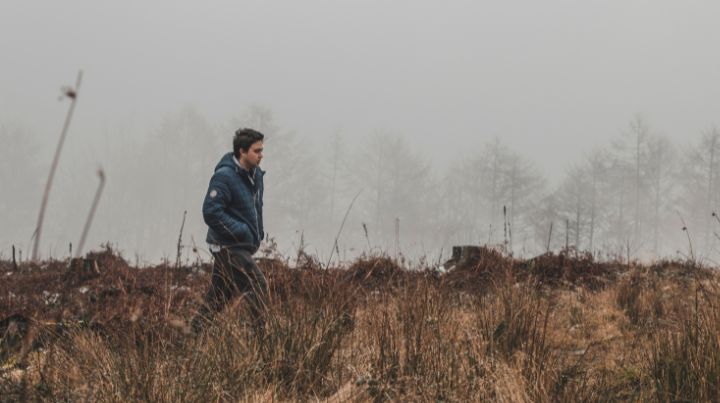
Specifically, we’re talking about society getting worse, our nation becoming increasingly divisive, and preparing for hard times in the future. Let’s dispel the idea of going it alone. Maybe for a short time, traveling from one location to another, but the average singleton would be hard-pressed to survive, let alone prosper, without, at a minimum, some kind of partisan network, and that isn’t created overnight.
How would I, as a singleton, provide security for myself at all times? How would I have enough food for the long term? Can I fix everything that might break? I’m reasonably well trained and equipped, and still, I assume very low odds of my long-term survival while remaining alone. That’s not saying it’s impossible. I’m saying it’s romanticized more than it should be.
The fact is we need a tribe, and our tribe will need community. We need to build a trusted tribe around us. We need to interact with people outside of our tribe, with whom we will share information, trade goods, and build alliances. And, we also need to know our enemies and those who conspire against us.
We Need to Start All This, and We Need to Start Right Now
Compartmentalization
I want to take a moment and talk about compartmentalization. For those of us that have had a security clearance, you probably get the idea, but let’s not assume everyone knows how this works. The military and government agencies use different classifications for information that has different levels of importance. Most people know that.
There are all kinds of classifications, such as NOFORN (Not For Release to Foreign Nationals), secret, top secret, and up to specific coded programs. The people who are allowed to know certain information must be at a specific level of clearance and usually that particular agency and program. I’m spending the time to cover some of this so that you can start thinking about your personal and operational information and the information you share with your tribe and your community in a similar manner.
Need to Know
The biggest fallacy about security clearances is that just because you have a certain level of clearance with a particular agency means you have access to ALL information at that level for your agency and others. The reality is the clearance level is just the baseline for the information. You still have to be “read in” to specific information within a program.
So, for our purposes, that means a person might be in your tribe, and they might know some information, but they won’t have access to certain pieces of personal or operational information.
Notionally, some people in your tribe might know where your firearms are located. Your community might know you have some firearms because you frequent the gun shop. And your enemies shouldn’t even know you have firearms unless things become volatile enough to display them, and even then, they shouldn’t know how many or where they’re kept. Your significant other might have the codes to your gun safes.
To build a tribe, you will share some vital information (radio frequencies and procedures, where your caches are located, etc.), so we must develop those relationships carefully. Those that don’t make it into your inner circle might still be able to provide a mutually beneficial relationship, but we need to know what we can and can’t share with them. It would also be nice to know who is working against us or who might be a threat to us at some point. We need some ways to figure all that out. We’ll get to that in a bit.
PerSec vs. OpSec
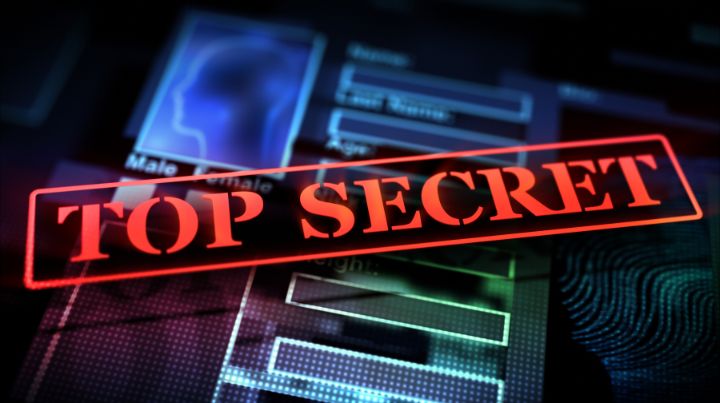
Back to the compartmentalization for a moment. I mentioned personal and operational information. Personal information might be your financials, where your hide your spare keys, or a second property you own. Operational security is how you and your tribe conduct yourselves, such as your plans for meeting up, your evacuation PACE (primary, alternate, contingency, emergency) plan, and tactics to defend yourselves.
We need to consider who needs to know certain information, which should be determined by who can positively impact the outcome. We also must consider the risk to our well-being if the information is compromised.
People are generally too forthcoming with their personal information, and it might be better to consider even the smallest detail as private and evaluate who really needs to know any specific information. Then we can compartmentalize pieces of information so that we mitigate the risk if exposed. Maybe we only tell one of our cache locations to a new member of our tribe, but not the other four caches we have. This also allows us to know if we have a leak. More on that shortly.
Family Can Be Tricky
Truthfully, sorting out strangers is WAY easier than sorting out loved ones. There are people within my tribe that are closer to me than family. There are family members that I would have as part of my community, but not my inner circle. I’m fortunate not to have any family I consider an adversary, but that doesn’t mean you don’t.
I can give an example that might show the difficulties of this dynamic. Several years ago, a hurricane was bearing down on the east coast, and in my opinion, the most prudent thing to do was to evacuate my children from the danger area. My ex-wife said they were staying because her parents were staying. Her tribe, and her decisions, impacted the safety of our children.
While I wouldn’t want any of them hurt, her tribe isn’t my concern, but my children are. Luckily for my family, the hurricane turned south, and it was a non-issue, but different tribes will have different priorities. She’s my ex-wife for a reason.
My advice is to take a hard look at those close to you in your personal life and be as truthful with yourself and those you already trust. Your tribe is what will keep you alive when things are going bad, and it only takes one poor choice to impact everyone you love.
Start discussing plans and how you think you would handle emergencies. Who does your spouse feel should come with you if you evacuate? Is there the logistical support to make it happen? Are they even willing to leave with you? It’s better to have the hard conversations before the emergency. Time will not be on your side.
This kind of thing can be challenging, but it’s better to have discussions beforehand and start pressure-testing your tribe and your community before you find out some of those people or groups aren’t as trustworthy as you thought. Again, your tribe, your inner circle, needs to share your motivations, morality, and common goals.
Indications Of Tribe Material
Let’s discuss how we can find our tribe. First, family is an excellent place to start. Second, people with the same hobbies and interests as you. This article isn’t necessarily about meeting people but more about ensuring we know the status of those around us. These meetings, venues, and activities provide the opportunity to communicate. Talking and listening is a great way to see the real intentions of others. Remember, those conspiring against us will also know these are good places to meet. Tread lightly in new surroundings or around new people.
Contribution and effort go a long way. If there’s a common goal and you see people putting time, money, and effort in the same direction, that might be a good indicator. If another family is willing to put money toward a plot of land with you and spend their weekends building structures and stocking supplies there, the odds are pretty good that they are aligned with you.
Time is an excellent indicator of a relationship. My dad has close friends with common interests that have existed for 40 years. I’m fortunate enough to benefit from those longstanding relationships. Those acquaintances have known me since I was a child. They know what I’m about, and I know what they’re about. I know who I can trust because of my father’s faith in them. I also trust my dad when he says one of them is compromised and what information to safeguard from them.
The last thing I’ll say may be a little controversial, and I’m definitely not going to get specific. Some of the people I trust the most in this world, I’ve done what’s known in the industry as “hoodrat shit.” I’ll let the reader interpret that however they want.
Weeding Out The Rest

Here are a few examples of how people or groups are tested for trustworthiness. These are just examples, and the intent is to give you ideas on how you might implement techniques appropriate to your needs. Again, referring to government or military lingo, these could be a form of Ops checking, meaning specific information or actions are put in place to validate a person or group. While it may seem a bit deceptive, I like to consider it safeguarding the personal and operational security of my tribe. Can you put a price on that?
Example 1:
Several years ago, I found myself talking on the phone to the FBI about someone else’s actions. They instructed me not to tell the person of interest that I was speaking to them. Given the circumstances of the investigation, my first action was to go dark and not engage the person at all, but they persistently contacted me and began to cause issues like calling my clients.
I opened a burner app on my phone and texted that I wouldn’t talk to that person anymore and to please stop contacting me. Later, sitting in the FBI field office, the agents asked me several more questions. The last question they asked me was if I told this person I was talking to the FBI. I told the agents I had reached out to them via a burner app because they were causing me some issues, but I DID NOT say anything about the FBI.
The agent showed me HIS phone displaying MY conversation with the person of interest. This was a very deliberate question to see if I was being truthful. They knew exactly what I had done and said—and if there had been any deviation, it would have degraded their trust in all the previous answers I provided.
Example 2:
This is an example from the 2008 movie Miami Vice with Colin Farrell and Jamie Foxx. The scene plays out that Tubbs (Jamie Foxx) is passing the information of a drug shipment’s arrival to his handler. Foxx instructs the handler to give each agency a different day of arrival. When the arrival day is passed on to the drug cartel, the good guys will know which agency has a leak by what delivery day the cartel receives.
Example 3:
An expert in privacy and Open Source Intelligence (OSINT) has a very smart practice regarding user names and passwords online. He uses a unique email address AND password for EVERY online sign-in. While this may seem laborious and a bit overkill, there are advantages. First, if any one of the online databases becomes compromised, then he knows the others are still safe.
This should be standard practice, but unfortunately, many people use the same email and user name and the same few passwords for all their online activity. The other advantage is that if his email starts receiving spam emails or is used on another webpage, he then knows the webpage itself isn’t acting in good faith or has been compromised.
Again, these are just examples. I’m not suggesting you start Ops checking your significant other. I think, though, as we decide whether we should include new people in our community and certainly into our tribe, we should think of ways to validate their intentions.
Wrap Up
This article hasn’t been specific about any kind of natural or man-made disaster. I’ve made a couple of loose references to being prepared, but this kind of mentality will help us in our relative normalcy.
Having a tribe, a community for a supply chain, trade, information, and defense, as well as knowing your adversaries, will be incredibly important when things get hard. Unfortunately, I think we’re going to see hard(er) times ahead of us very soon.
With that, I’d rather know I’ve established my tribe and community before I need them for survival.
Additional Resources
- Prepping Groups or Going It Alone – Which Is Best?
- The Secrets to Hiding Preps in Plain Sight
- Personal Safety and Security Tips
- What is Prepping? It’s More Than Stockpiling Food!
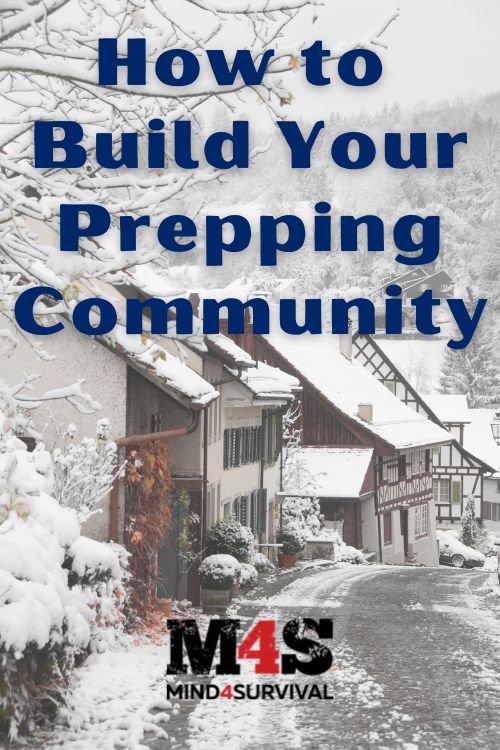
Don't Miss Out!
Join the thousands of people who rely on Mind4Survival preparedness advice by subscribing to our FREE newsletter.
- Practical preparedness information
- Zero Spam
- < 0.25% of people unsubscribe




Join Mind4Survival!
Stay informed by joining the Mind4Survival! 100% Secure! 0% Spam!
Follow Us!
Affiliate Disclosure
Mind4Survival is a free, reader-supported information resource. If you make a purchase through our link, we may, at no cost to you, receive an affiliate commission.

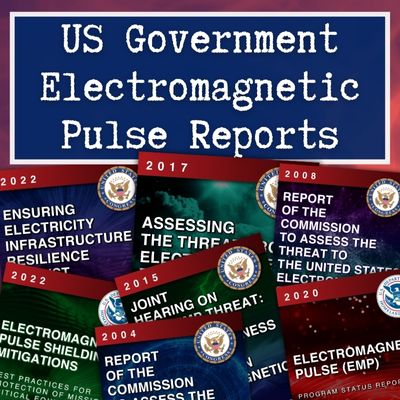
Thank you for the thought-provoking review. As a 2-yr widow, the tribe my husband and I had established has been some great backbone for me as I manage duties we used to share. This experience has actually served to show me some of their loyalty and willingness to assist and protect. They are more “invested” in this location. I appreciate the pointers you’ve made since my nature is to trust first, then verify. Im learning to proceed with caution. I never tell a new acquaintance where I live. Nor do I reveal that I am a widow…I instead refer to “my husband and I.” I found your definition of tribe, neighborhood, and community helpful. I could go on and on, but suffice to say – your suggestions, experience, and vantage is appreciated.
Happy I could help!!